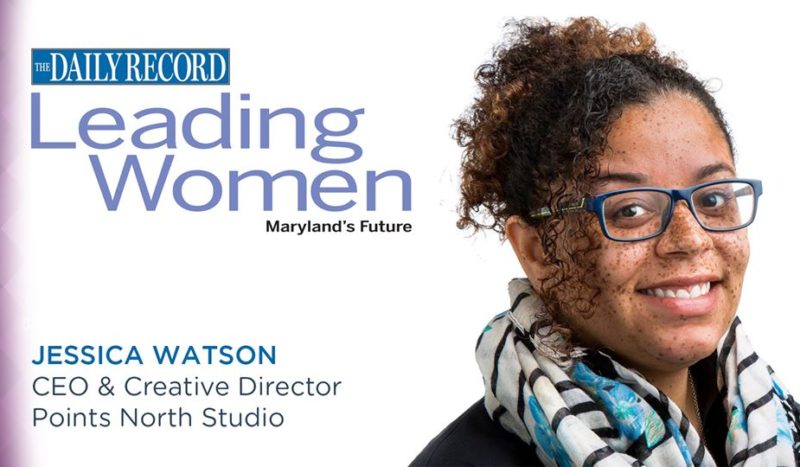What do you do when faced with a pandemic and uncertain times for small businesses? Apparently, I jump into the nearest business incubator program. This past December, I completed a 2-year program called Hutch.
Hutch, founded by Fearless, is an intensive 24-month program that provides underrepresented entrepreneurs with a blueprint for building successful and impactful government digital services firms. The program equips businesses with the tools, mentorship, and peer-to-peer support they need to thrive in the world of government contracting. That’s 2 years, 24 full-work-day classes (approx 192 hours, I counted), and several unique topics ranging from projecting revenue to articulating company values. And homework, lots of homework. I’ve never done an incubator program before, as they are historically reserved for start-ups seeking funding or bringing a product to market. So I didn’t know exactly what to expect. Life is best understood when looking back. Here are the top lessons I learned from 2 years in Hutch.
Be open to a different path.
“The only way to discover the limits of the possible is to go beyond them into the impossible.” – Arthur C. Clarke
Sometimes we get so comfortable with our routine that we forget that there’s another way of doing things. As we grow older and gain more experience, it’s easy to fall into patterns of behavior without even realizing we’re doing so. Some patterns that may have been useful before no longer serve us well in our current situation or environment.
Before Hutch, I wasn’t quite sure where I fit in the digital services arena for the government. My limited view of the government services arena didn’t seem like something I wanted to get involved in. But Hutch leads with the understanding that a government is for the people, and that companies like Points North can help different entities to better serve our people, our communities, and our planet. They really provided a 360-view, shining a lot on opportunities where we could get involved. After graduating, I can see that there are spaces within government contracting and subcontracting that align with our values. We’re also now a part of a network of great companies to partner with. Every company in our network has been through this program.
Lean on your new community.
Lesson two is to lean on the mentors, instructors, and your work community for questions, advice, and concerns. Oftentimes the members of the ecosystem can provide a fresh perspective, new ideas, and additional support. Hutch provided something else in addition to all the lessons. They provided community. A group of like-minded professionals who were all facing similar challenges as business owners.
Having a trusted circle as a business owner can be important for a number of reasons. First and foremost, it can provide you with a support system of people who can offer advice, guidance, and encouragement as you navigate the challenges and opportunities of running a business.
These individuals can also be a valuable source of information, helping you stay up to date on industry trends, new technologies, and other developments that could impact your business.
In addition, a trusted circle can help you stay accountable to your goals and commitments. It can provide a sense of community and belonging as you work to grow and develop your business. This can be particularly important for entrepreneurs, who may not have the same level of support and resources available to them as larger, more established companies.
Finally, having a trusted circle can also provide you with a network of contacts and resources that you can tap into as you look to grow and scale your business. This can include things like introductions to potential partners, clients, or investors, as well as access to specialized expertise or resources that you may not have within your own organization. Overall, having a trusted circle can be a valuable asset for any business owner looking to succeed in today’s competitive marketplace.
The foundation of your business matters.
We’re an outlier in this program because we’ve been established for 12+ years. So, when one of the sessions was on branding and defining who we are, I thought we had that in the bag. In reality, we had not gone back to review our core mission, vision, and values, in years. Yikes! So Hutch offered a chance for us to revisit that messaging, and fine-tune it so that it highlights our values and connects deeply with our target audience.
Having a strong mission, vision, and values can benefit a business in several ways.
- Direction and focus
A clear mission, vision, and values provide a sense of direction and focus for the business, helping to guide decision-making and prioritize actions. This can help the business stay on track and achieve its goals. - Employee engagement
Having a strong sense of purpose can increase employee engagement and commitment to the business. When employees understand and believe in the company’s mission, vision, and values, they are more likely to be motivated to work towards its success. - Customer loyalty
Customers are more likely to be loyal to a company that they perceive as having strong values that align with their own. This can lead to increased customer retention and positive word-of-mouth marketing. - Reputation
A company with a strong sense of purpose and values is likely to be seen as more trustworthy and reputable by both customers and stakeholders. This can enhance the company’s reputation and overall brand image.
Overall, a strong mission, vision, and values help to create a sense of purpose and direction for a business, which can lead to increased employee engagement, customer loyalty, and a positive reputation. Whether you’ve been in business for years or just starting out, being clear on these items should never be overlooked.
Set healthy boundaries for the hard days.
It’s easy to get overwhelmed, especially as a busy professional. Juggling work and personal life can be challenging. When you’re feeling stressed out, it’s tempting to just keep working. But it’s important to set healthy boundaries and speak up when you feel overwhelmed. It would be an understatement if I didn’t say I felt simultaneously inspired and overwhelmed throughout this program. I only wish I had let the coordinators know sooner, so they could be aware and offer solutions.
Setting boundaries can be difficult because we don’t want to come across as ungrateful or disrespectful. We also want our colleagues to know that they can count on us when they need us. But if we’re not careful, we end up burning out and feeling resentful toward our colleagues who depend on us. This doesn’t mean you are saying no to everything. It means you’re prioritizing what’s most important and then saying yes to those things. It also means being honest with yourself about your limits and being able to say no when it’s appropriate.
Tips for setting healthy boundaries at work:
- Know your limits.
Identify the tasks you do well and the tasks that need help so that there is not too much on your plate. Then ask for assistance from other people if there are tasks that are beyond your ability or knowledge level. - Set realistic expectations.
Don’t take on more than you can handle, whether it’s an extra project or a new role at work (such as becoming a manager). You’ll be better able to meet deadlines and keep things organized if you don’t take on too many projects at once. - Set priorities.
Think carefully before saying yes or no to any request or task at work. Focus on what is most important right now, which includes taking care of yourself. Boundaries look a lot different during a pandemic, but there are ways you can still fill up your own cup, and be a better team player at work.
In conclusion…
Before I knew it, I was sitting at the graduation waiting for my name to be called, looking back like “has it really been 2 years?” Time has always been funny that way, but it becomes even harder to account for in uncertain times. Thank you to Delali Dzirasa, John Foster, Stephanie Chin, and the many teachers and mentors of the Hutch program. And shout out to my classmates, Vasu from VITG Corp, Joey from JumpStart, and Kalada from Ibeify. Last but not least, thank you to my support network who stuck with me while I had my most challenging schedule since grade school. Check out the Hutch website if you are interested in learning more about this program and applying. To apply you need to meet four criteria: be a founder, be in digital services, be down for Baltimore, and be ready to dive deep.


